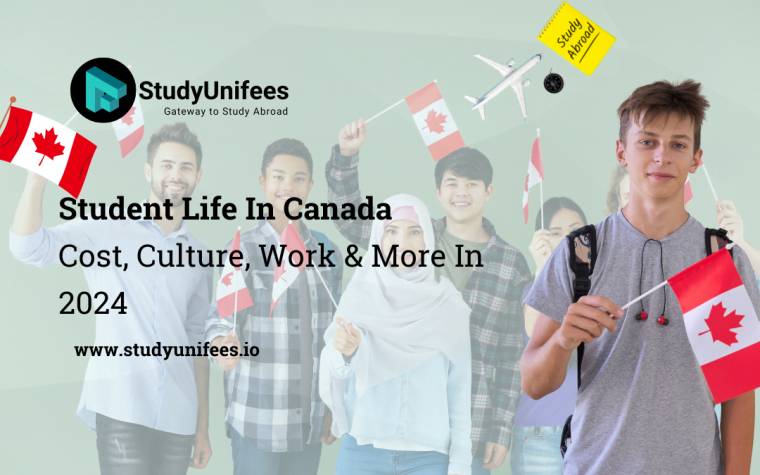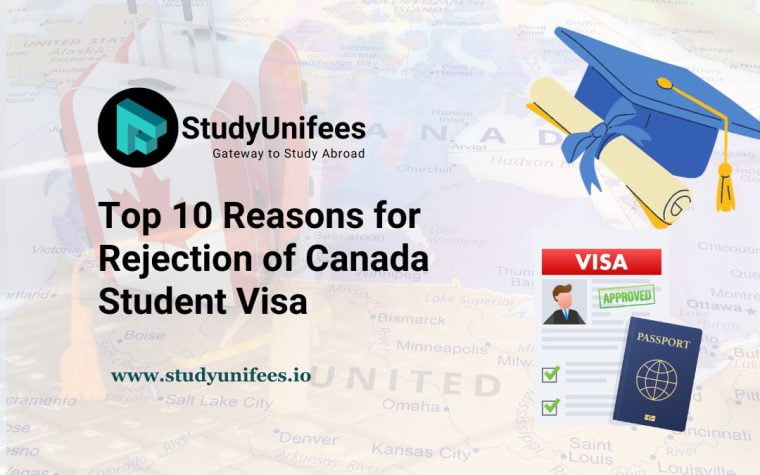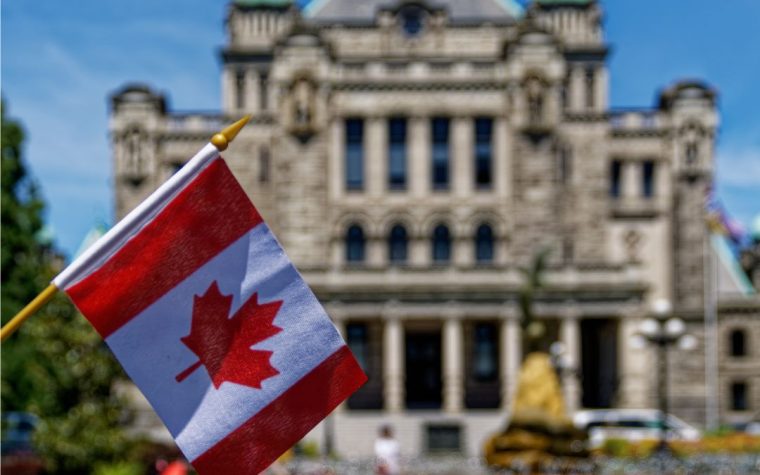Studying Abroad in Canada: An Introduction
Thinking of studying abroad? Canada could be the ideal choice for you! This diverse country boasts top universities, a multicultural ambiance, and breathtaking scenery, making it a truly enriching experience for international students. However, it’s crucial to be fully equipped before taking this journey. In this blog post, we’ll provide guidance on 11 key considerations before pursuing your studies in Canada. From selecting the best institution and program to navigating visa procedures and cultural adaptation, we’ve got everything covered. Get ready to dive into a nation known for maple syrup, hockey, and academic distinction!
- Choosing the Right University and Program
It is essential to do your research and find the right university and program for your academic goals when considering studying abroad in Canada.
Consider factors such as reputation, faculty expertise, course offerings, and campus facilities when comparing universities in Canada. Look for universities that offer strong programs in your field of study.
The next step is to decide what you want to study. Think about your career goals, your personal interests, and your academic abilities. Find out what programs each university offers and determine if they align with your goals. Depending on the discipline, some universities may excel or offer unique internship opportunities or research opportunities.
Consider the location of the university as well. Do you prefer a bustling city environment or a more serene campus? Do you want access to specific industries or cultural experiences that certain cities offer?
Check the admission requirements! Each university may have its own set of English language proficiency requirements, such as IELTS or TOEFL.
The right university and program requires careful consideration of a number of factors that are important to you personally. Your study abroad experience in Canada will be successful if you take the time to explore all your options.
- Understanding the Visa Process
With the right information and preparation, you can successfully navigate the visa application process. When studying abroad in Canada, it’s important to understand the visa requirements and procedures beforehand.
If you are an international student, you will typically need a study permit, which allows you to study at designated learning institutions (DLIs) in Canada for longer than six months.
You will need to provide proof of financial support to cover your tuition fees and living expenses during your stay in Canada before applying for a study permit.
You can apply online or through paper applications at the Canadian embassy or consulate in your home country. Make sure to include all necessary documents, such as a proof of acceptance letter from the DLI and a valid passport.
You may be required to submit biometrics or attend an interview after submitting your application, so follow all instructions promptly and accurately.
It is recommended to submit your application well in advance of your intended start date to allow enough time for processing. Processing times vary depending on several factors including nationality and time of year.
By familiarizing yourself with the requirements and following the correct procedures diligently, you can ensure a smooth transition into this exciting phase of your life.
- Cost of Living in Canada
It is important to consider the cost of living when studying abroad in Canada. While tuition fees may vary depending on the university and program you choose, it is equally important to budget for your day-to-day expenses.
The cost of living in major cities like Toronto and Vancouver can be higher than in smaller towns or suburbs. Rent prices, transportation costs, and groceries are some of the key factors to consider.
In addition, exploring options like homestays or student residences might provide more affordable alternatives to renting an apartment off-campus.
The cost of transportation will also affect your finances. Public transportation systems such as buses, subways, and trains are readily available in most Canadian cities. Investing in a monthly transit pass can help you save money.
To save money on everyday purchases, like groceries and dining out, it’s advisable to compare prices at different establishments before making a decision. Cooking meals at home instead of eating out regularly can also help you save money.
Some provinces have their own sales taxes, which can add up when making purchases. Understanding these additional charges will help you to better manage your spending.
Studying abroad in Canada offers excellent educational opportunities, but it’s important to plan ahead financially to make the most of your experience.
- Official Languages in Canada
Among the unique aspects of studying abroad in Canada is its official languages – English and French. In Quebec and other francophone regions, French has a significant presence while English is widely spoken across the country, especially in major cities like Toronto and Vancouver.
In order to be successful at their chosen university or program, international students need to be aware of the language requirements. While some institutions require proficiency in English or French, others offer language support programs to help students improve their language skills.
Having the opportunity to immerse yourself in different cultures and languages can be an enriching experience when you study in a bilingual environment. By becoming proficient in French and English, you will be able to broaden your career prospects and develop your language skills.
It provides an opportunity to interact with people from diverse cultural backgrounds, which contributes to the multicultural fabric of Canada by exposing you to diverse perspectives.
If you want to maximize your study abroad experience with respect to official languages, join a language exchange program or club where you can practice speaking both English and French. By taking advantage of these opportunities, you will not only improve your communication skills, but also develop meaningful relationships with other students.
As a result of its official bilingualism status, Canada offers a unique linguistic experience when studying abroad. You’ll gain valuable cultural insights that will last long after you graduate if you embrace both English and French during your time there, as well as enhance your academic journey.
- Cultural Differences and Adjustments
It is an excellent opportunity to immerse yourself in a multicultural society while studying abroad in Canada. While Canada is known for its diversity, this cultural melting pot can also produce some differences and adjustments that you should be aware of.
The concept of personal space is one to consider. When interacting with others, Canadians tend to maintain a comfortable distance. It is not uncommon for them to greet each other with a handshake or a light hug rather than kissing each other on the cheek.
Punctuality is another cultural difference you may encounter. Canadians place a high value on arriving on time for appointments and meetings.
Language can also be an adjustment, since English and French are both official languages in Canada. English is widely spoken across the country, but Quebec is primarily French speaking. Getting to know basic phrases can help bridge communication gaps.
Unlike other cultures, Canadian politeness manifests itself differently. Canadians are polite but reserved; they may appear formal at first.
In order to embrace multiculturalism, Canadian society must respect its various customs and traditions. By being open-minded to diverse perspectives, you will be able to enrich your study abroad experience by learning from others’ perspectives and sharing your own culture.
It’s important to embrace cultural differences with an open mind, respect local customs, and take full advantage of this incredible opportunity while studying abroad in Canada!
- Preparing for the Weather
You should prepare for the four distinct seasons in Canada before you begin your study abroad experience. The country experiences four distinct seasons, each of which brings its own challenges and rewards.
Temperatures can drop well below freezing point during the winter, especially in areas like Ontario and Quebec. Be prepared for snowfall by investing in warm winter clothes like a heavy coat, boots, gloves, and hats. Layering your clothing will keep you warm during those chilly walks between classes.
In contrast, summers in Canada can get quite hot and humid, especially in provinces like British Columbia and Alberta. Lightweight clothing made from breathable fabrics is essential to keep cool during this time of year. Don’t forget sunscreen and sunglasses to protect yourself from the sun’s rays!
Always carry an umbrella or raincoat with you if you’re studying in coastal areas or near the Great Lakes region.
Spring and autumn are transitional seasons with milder temperatures, but they can still bring rain showers and sudden drops in temperature. It’s wise to check the local weather forecast regularly and dress accordingly.
The best way to adapt comfortably to Mother Nature’s unpredictable weather is to be aware of Canada’s ever-changing climate patterns and prepare accordingly.
- Health Insurance and Healthcare in Canada
When studying abroad in Canada, it is important to consider your health insurance coverage. International students may be required to have health insurance. Although the Canadian healthcare system is known for its quality and accessibility, it is essential to understand how it works.
In Canada, each province has its own healthcare system. International students need to familiarize themselves with the local health insurance policies if they plan to study in a particular province. Some provinces provide health insurance coverage for international students through their provincial plans. Students in some provinces must purchase private health insurance.
Make sure you research and compare different health insurance options available to international students in Canada. Look for comprehensive coverage that includes doctor’s visits, prescription medications, and hospitalizations.
Make sure you bring all necessary documents with you when seeking medical care, including your proof of enrollment as a student and your health insurance card.
Although healthcare services are generally accessible in Canada, certain procedures or specialized treatments may have a waiting period. When seeking medical attention, it is always wise to follow the guidelines provided by your university or institution regarding accessing healthcare services.
You should ensure your health is a priority when studying abroad. By understanding the Canadian healthcare system and having appropriate health insurance coverage, you can ensure peace of mind during your academic journey.
- Cost of Living in Canada
A clear understanding of the expenses you will incur as an international student is essential when studying abroad in Canada.
The cost of housing varies depending on the city or province you choose to study in. Major cities like Toronto and Vancouver tend to have higher rental prices than smaller towns or rural areas. Shared accommodations with roommates can reduce costs.
Eating out at restaurants can be costly, so it’s advisable to prepare meals at home whenever possible. Grocery stores offer a wide range of affordable options for students looking to save money on their daily meals.
Most Canadian cities have reliable public transportation systems, such as buses and trains, which are cheaper alternatives than owning a car.
Furthermore, healthcare expenses must be taken into account when planning your finances in Canada. In spite of the fact that international students are usually covered by their universities or provinces for health insurance, some medical services may require out-of-pocket payment.
There are plenty of exciting opportunities for exploration in Canada, including hiking trails, national parks, museums, and cultural events, all adding to the overall cost of living.
Studying abroad in Canada requires you to be aware of these various expenses.
- Safety and Security in Canada
Studying abroad in any country, including Canada, requires consideration of safety and security. Fortunately, Canada is considered one of the safest countries in the world. Its low crime rates and stable political climate make students feel safe during their time here.
The government of Canada places a high priority on ensuring the safety of its citizens and visitors. As part of their efforts to maintain law and order, the government has established well-equipped police forces and strict gun control laws. Furthermore, Canada has a comprehensive healthcare system that ensures prompt medical attention if necessary.
While it’s always important to take precautions no matter where you are, international students will find that they can explore Canadian cities with peace of mind. The country is well-off in terms of personal safety, whether you’re exploring vibrant neighbourhoods or hiking or skiing.
In addition to providing campus security services and resources, universities have dedicated personnel who are available 24/7 to deal with any concerns or emergencies.
In addition, Canadian society is known for welcoming people from diverse backgrounds. This attitude creates an environment where international students feel accepted and safe.
Students should be aware of their surroundings at all times and follow basic safety protocols such as locking doors securely and avoiding risky situations late at night, even though overall safety levels are high in Canada.
Choosing to study abroad in Canada offers not only excellent educational opportunities, but also a safe environment conducive to personal growth and exploration.
- Finding Accommodation
In Canada, there are a wide range of accommodation options available, so you’ll want to start your search early and explore different options.
International students can choose university-managed housing for a convenient, supportive living environment. These accommodations are often located on or near campus, so they are easy to access classes and other university facilities. In addition to meal plans and social activities, they may offer other services as well.
You can also rent an apartment or house off-campus, which gives you more freedom and independence, but requires careful research and planning. Before you sign a lease agreement, consider the location, price, and amenities offered.
Another option is to live with a local Canadian family while studying abroad, allowing you to immerse yourself in Canadian culture and have a support system during your studies.
Students looking for roommates or sublets can find them online through websites that connect them with potential roommates. It’s a great way to meet new people from different backgrounds while sharing the expenses of rent and utilities.
You should familiarize yourself with your rights and responsibilities as a tenant in Canada and budget accordingly for rent, utilities, internet access, groceries, and other necessities.
As a whole, The right accommodation will greatly enhance your study abroad experience in Canada. Finding the right place takes time and effort, but you’ll be glad you did!
- Part-time Job Opportunities for International Students
Working part-time while studying abroad in Canada is one of the benefits of studying abroad, as you can gain valuable work experience while also alleviating some financial pressure.
International students have a variety of part-time job options in Canada. You can find employment on or off campus. Many universities have their own career centers that can assist you in finding a job.
Many international students choose to work on campus to be able to balance their studies and work obligations. Positions such as library assistants, lab technicians, and administrative roles are available on campus.
A number of industries in Canada hire international students off-campus. Retail, hospitality, customer service, and tutoring are just a few examples.
International students in Canada may have restrictions on how many hours they are allowed to work per week during the academic year. The Canadian government typically permits students to work up to 20 hours per week while classes are in session.
Moreover, as an international student starting a part-time job in Canada, make sure you have the proper documentation and work permits required by law. This ensures that your employment is legal and protects both yourself and your employer.
As well as providing financial benefits, part-time work while studying abroad helps enhance your communication abilities and time management skills, which contribute greatly to your future employment prospects.
Consider exploring part-time job opportunities while studying abroad in Canada if you’re interested in gaining practical work experience along with your studies!
Studying abroad in Canada can be a life-changing experience filled with new adventures, cultural immersion, and personal development. By being prepared and informed, you can make the most of your time and create lasting memories.
We hope you have a wonderful study abroad experience in Canada!






